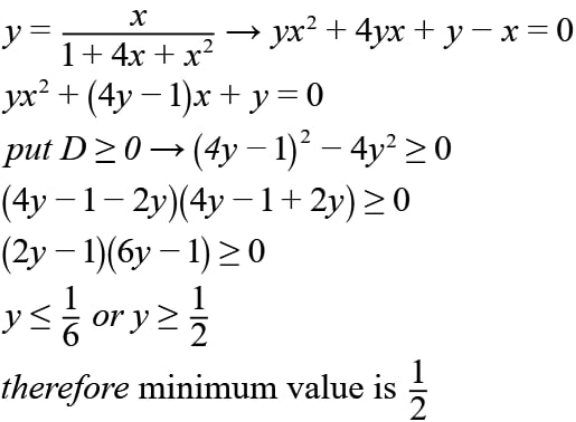Question Number 143505 by mim24 last updated on 15/Jun/21

Commented by mr W last updated on 15/Jun/21

$${f}\left({x}\right)=\frac{{x}}{\left({x}+\mathrm{2}+\sqrt{\mathrm{3}}\right)\left({x}+\mathrm{2}−\sqrt{\mathrm{3}}\right)} \\ $$$${f}\left({x}\right)\rightarrow\pm\infty\:{when}\:{x}\rightarrow−\mathrm{2}\pm\sqrt{\mathrm{3}} \\ $$$$\Rightarrow{no}\:{maximum},\:{no}\:{minimum} \\ $$
Answered by bramlexs22 last updated on 15/Jun/21

Commented by mim24 last updated on 16/Jun/21

$${thank}\:{you} \\ $$$$ \\ $$$$ \\ $$
Commented by bramlexs22 last updated on 15/Jun/21

$${maximum}\:{value}\:{is}\:\frac{\mathrm{1}}{\mathrm{6}} \\ $$
Commented by MJS_new last updated on 15/Jun/21

$$“\mathrm{maximum}''\:\neq\:“\mathrm{local}\:\mathrm{maximum}'' \\ $$$$\mathrm{same}\:\mathrm{for}\:\mathrm{minimum} \\ $$$$\mathrm{the}\:\mathrm{question}\:\mathrm{says}\:“\mathrm{maximum}''. \\ $$
